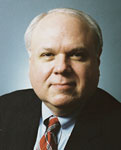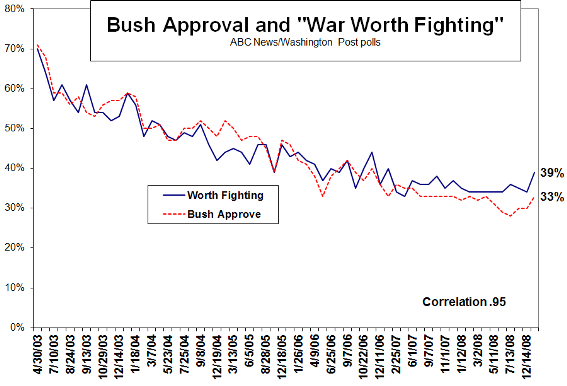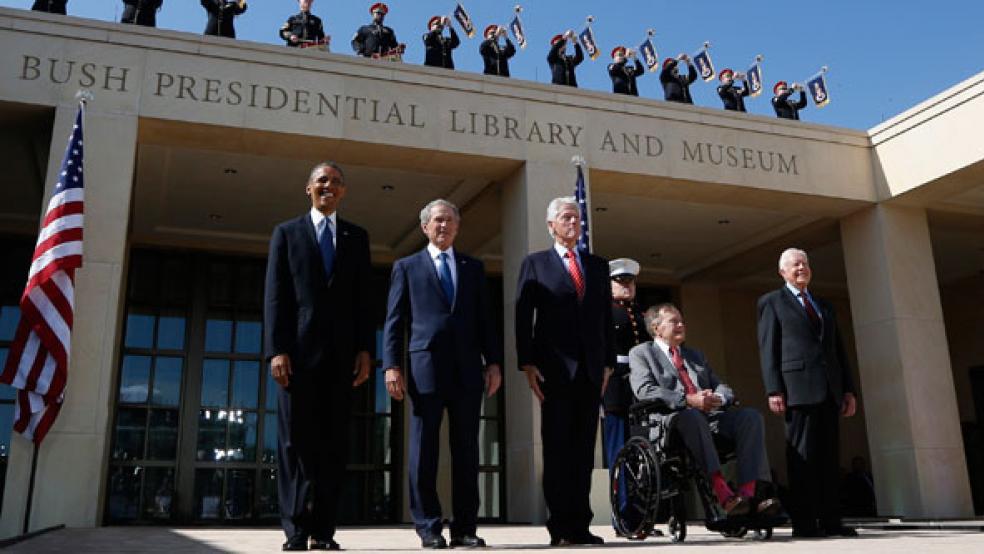The George W. Bush Presidential Library opened today at Southern Methodist University in Dallas. Simultaneously, Republicans have launched an effort to rehabilitate the former president, who has climbed a bit in the polls since leaving office in 2009. But according to Gallup, Bush still ranks well below his five predecessors in terms of post-presidential popularity.

Before saying more, I should confess up front that I am not objective about Bush 43. I published a book in 2006 called Impostor: How George W. Bush Bankrupted America and Betrayed the Reagan Legacy that was highly critical of his economic policy. I have no reason to take back anything I said in that book, but there were some things that were left out due to deadline pressures and things that happened subsequently that I think deserve mention.
Iraq and Afghanistan . I didn’t mention this in my book because I wanted to focus on economic policy, which is my specialty. But of course there is an economic component to war. A recent study from the Kennedy School of Government at Harvard put the cost of the wars in Iraq and Afghanistan thus far at $2 trillion, with an ultimate cost two or three times higher for veterans' benefits and other expenses that will go on for many years after the final U.S. pullout.
According to the ABC News/Washington Post poll, fewer than 4 out of 10 Americans believe that these wars were worth fighting. As the figure shows, Bush’s popularity closely tracks support for the wars. A 2011 Pew poll, found that more people blame the Iraq/Afghanistan wars for the national debt than blame domestic spending, tax cuts or the state of the economy.

Katrina . Hurricane Katrina hit the Gulf Coast in late August, 2005 and devastated the city of New Orleans, which suffered heavy flooding, massive property damage and close to 2,000 dead. Subsequent reports were highly critical of the Bush administration’s handling of flood control projects in New Orleans, its loading up the Federal Emergency Management Agency with unqualified political hacks, its lack of preparation for Katrina, and poor management of the federal response to the hurricane.
What I think was worst, in terms of Bush’s personal responsibility, was his failure to follow through on the promises he made to the people of New Orleans in a nationally-televised speech from the ravaged city on September 15, 2005. In particular, Bush pledged his support to eradicate poverty in New Orleans. But there was never any follow-through; it was all just talk. A year later there was no evidence that Bush had done anything whatsoever to implement his promises.
Harriet Miers . On October 3, 2005, Bush nominated his White House counsel Harriet E. Miers to a seat on the Supreme Court. Conservatives, who had held their noses for years as Bush violated conservative principles on education, spending, protectionism and other issues that I condemned him for in my book, suddenly found something they were willing to publicly criticize him about. Almost uniformly, they viewed Miers as grossly unqualified and attacked Bush for wasting a precious opportunity to tilt the Supreme Court in a rightward direction.
As the conservative columnist Robert D. Novak put it, “The conservative Republican base had tolerated George W. Bush’s leftward lunges on education spending and prescription drug subsidies to reelect him so he could fill the Supreme Court with conservatives and send it rightward.”
When he dropped the ball with Miers, the right was furious. After failing to ram Miers through the opposition of conservatives who had always looked the other way when he violated their principles, Bush withdrew Miers and nominated instead Samuel Alito, whom conservatives universally embraced.
I think the Miers incident is important because it shows that the Bush presidency could have been much better from a conservative point of view if conservatives had been willing to stand up to him when he got off the reservation. Instead, by and large, conservatives circled the wagons around Bush and defended him even when they knew he was wrong. Power was more important to them than principle.
***
There are of course any number of other reasons why I think Bush was a poor president, a view generally shared by the American people. About the only good thing I can say about him is that he has been a reasonably good ex-president, staying out of the public eye and mostly keeping his mouth shut. Perhaps if he continues this policy for another 20 years or so, memories will fade, worse presidents may come long and people might eventually concede that he wasn’t so bad after all. It could happen.



